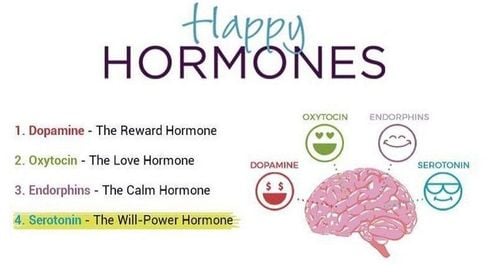This is an automatically translated article.
Loneliness can make it difficult to control your actions, lower your immune system and increase your risk of depression... More specifically, this type of emotion can spread to those around you if they We share or express our grief with them.
1. What is loneliness?
Loneliness is a complex emotional state that refers to the disparity between the quality and quantity of the relationships you desire and the relationships you actually have. Loneliness often includes feelings of anxiety about a lack of connection or communication with other individuals, both now and into the future. Thus, loneliness can form when you have a lot of friends or people around but not the relationships you want, difficult to share.
The causes of loneliness are manifold, it can include social, mental, emotional and physical factors. Some of the factors that increase loneliness include:
Loneliness can be formed at a young age due to hot-tempered parents, violence makes children develop introverted, closed lives, less sharing with people around . Introverts are more at risk of loneliness than sharing; Losing an important person in your life is also a factor leading to loneliness, although sometimes with companions, you can still feel lonely; Influence by society and work: Work is not as expected, people around create great pressure on themselves. People with communication disorders are also very likely to fall into loneliness. This is also a factor in low population densities. Reduce person-to-person communication. In addition, there is a loneliness gene. This gene can be passed from parents to children, but not every time you carry this gene, you will be lonely. Which will easily affect how much you feel distressed by the loss of social connection. If you have this gene, you're more likely to feel pain when you don't have the type of relationship you want.

Mất mát đi một người quan trọng trong cuộc sống cũng là yếu tố dẫn tới sự cô đơn
The effects of loneliness on us:
The impact of loneliness on mental health: When loneliness lasts long, you will always feel you lack confidence, lack of energy for daily activities . If it gets worse, it will lead to depression, a high risk of suicide. It was found through a study that loneliness is more likely to lead to death in men than women, and that lonely men are also less resilient and more prone to depression than lonely women. Effects on physical health: A series of studies have shown that loneliness leads to diseases such as diabetes, sleep problems, increased risk of cancer, cardiovascular problems, overweight and obesity. Obesity, affects the immune system... Loneliness is not only an emotion of ours, but it is also a cause of a variety of disorders in the body. Therefore, overcoming loneliness is essential to help the body function better.
2. Is loneliness contagious?
A study shows that loneliness can spread to others as a contagious disease. Because lonely people tend to share their loneliness with others. It is their sense of isolation and despair that negatively affects friends, neighbors, even acquaintances...
Just like being around happy people makes us happy too. If we are often in contact with people who feel lonely, then we ourselves are surrounded by loneliness.
Thus, people who are not lonely but have lonely friends also tend to become more lonely.

Sự cô đơn có thể hình thành khi bạn có rất nhiều bạn hay nhiều người xung quanh
3. How to overcome loneliness?
Loneliness not only affects your emotions, but it also affects your mental health, physical health, increases the risk of many dangerous diseases and even the risk of suicide.
So, when you feel lonely, find ways to improve that loneliness as soon as possible. Some measures to help us overcome loneliness:
Discover the cause of loneliness: To treat it completely, you need to find out what causes your loneliness. From there, deal with the cause effectively. Increase the number of connections with the people around: This is one of the ways to help you overcome loneliness. There are many different ways you can combat loneliness, such as increasing the number of people you talk to. Talk to them about the things that both of you are currently interested in, increase the connection time. You can call, text and visit your loved ones who have not been in touch for a long time. Make time for the things you enjoy: Spend your free time doing things that you love or things you feel are not really satisfied. If you can do something you enjoy, it will help improve your mood, increase energy for activities, and connect with people with similar interests. Adjusting emotions and perception to the world around: Negative emotions like sadness, despair are something everyone feels in this life. But if we know how to accept or think in a more optimistic way, the feeling of sadness and despair will be reduced. Pets: The presence of pets such as dogs, cats, rabbits... can help us reduce loneliness in life. Loneliness can spread to those around us if we share or express our grief with them. However, if you increase your connection with the people around you, talk about fun things or events that interest you both, you will reduce loneliness.
Please dial HOTLINE for more information or register for an appointment HERE. Download MyVinmec app to make appointments faster and to manage your bookings easily.
References: webmd.com, cam.ac.uk, healthline.com












